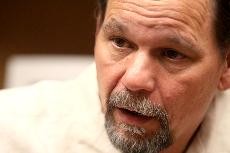For some, distance is no concern when it comes to helping those in need.
A team of orthopedic surgeons and students from the University of Arizona have returned to Tucson after exercising their knowledge and skill on a week-long volunteer trip to Honduras.
For the past five years, Dr. Joseph Sheppard has visited Honduras, where he mentors and teaches local orthopedic and plastic surgery patients at Hospital Escuela, in the Honduran capital, Tegucigalpa.
Sheppard, a hand and micro-vascular surgeon and associate professor of clinical and orthopedic surgery at the UA College of Medicine, said his venture to Honduras is a combination of two things: using doctors’ medical skills to perform surgeries and teaching those skills to local residents so they can manage injuries on their own.
“”We simply cannot do enough of what is required to make a difference,”” Sheppard said. “”Our time there is finite. We saw about 120 people, performed about 40 surgeries. That’s a lot, but there’s much more to be done. Being able to teach is much more important than us doing it ourselves. Catch a fish and you can feed a man dinner. Teach a man to fish, he can feed his family.””
Sheppard is a volunteer for Hand Surgeries Overseas, a program of Health Volunteers Overseas, which is a private nonprofit organization devoted to improving the quality and availability of healthcare in developing countries.
According to Sheppard, the surgeons see a fair number of children born with birth defects, something that is currently undertreated in Honduras.
“”Pediatric trauma is big there,”” Sheppard said. “”The machete is used as a tool for clearing fields and harvesting bananas; however, it has also become an implement of violence – we see both accidental and intentional trauma.””
According to Sheppard, the recycling of technology is a crucial and growing field.
“”Most of the equipment we take and leave there is outdated and with the technological advances we experience in the United States, we have a new system that replaces an old system. That old system may be a first generation in Honduras. This is an important part of what we try to do,”” Sheppard said.
Accompanying Dr. Sheppard was Megan Anne Meislin, a fourth-year medical student in the College of Medicine, Dr. John Ruth, a trauma surgeon who heads the UA orthopedic surgery department, Dr. Shoaib Sheikh, a hand surgeon in the department, and Dr. Jolene Clark, a fourth-year orthopedic surgery resident.
“”As a medical student, it was a great chance for me to get involved with orthopedics, see and participate with surgeries that are not routinely done in the U.S., and start giving back with the tools I have gained while in medical school here at the UA,”” Meislin said. “”This trip has only motivated me even more to integrate international medicine in my future career.””
The annual trip was a success for all, but worked as an eye-opener for Dr. Clark, who has never provided healthcare overseas before.
“”In all, I learned that I really ought to stop complaining about the healthcare system in America,”” Clark said. “”It is phenomenal compared to what is available to many people in the world. I am so grateful for the opportunity I had to work with the good people of Honduras and especially for all they taught me. I have no doubt but that they have made me a better doctor.””
For Sheppard, the most rewarding part of the trip was to see a child come back to the clinic, recognize him and smile, he said.
“”It makes acceptance of life in America so much more meaningful. You realize just how different our issues and concerns are,”” Sheppard said. “”When you do good for others, you are also doing yourself good. What it gives you is immeasurable. It enhances your life, as well as your patients.””
He also thought it was very meaningful when he asked residents a questions and have them answer correctly, the same question they answered wrong a year before.
“”I’ve been blessed,”” said Sheppard. “”And I hope that I am inspiring others.””



